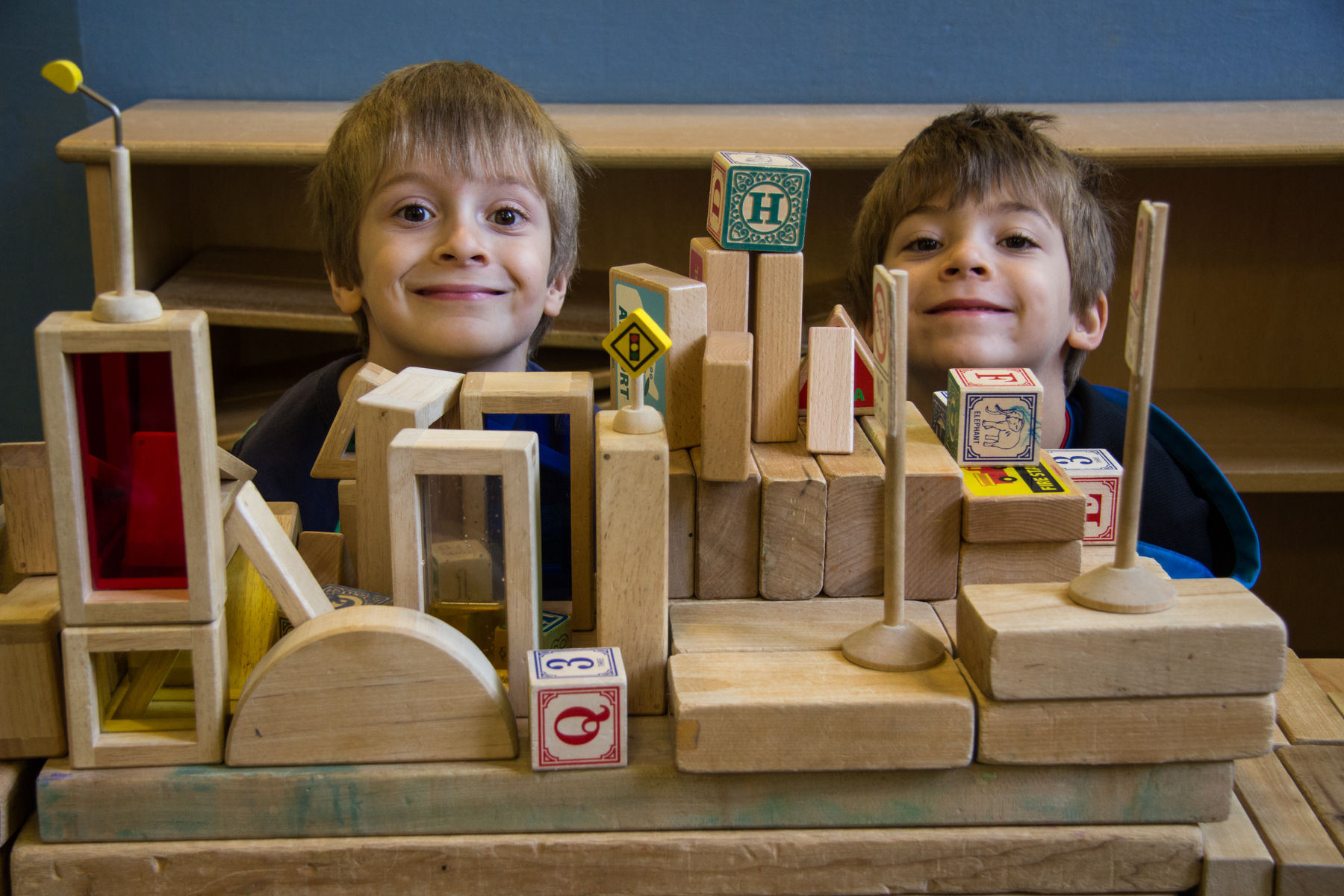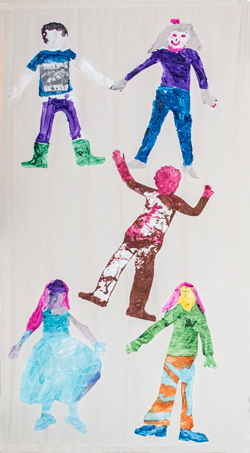Classroom Participation

Parental Involvement – Regular Parental Classroom Participation:
If your child is in the preschool program, your participation is approximately two days a month. This is an average over the school year — some months may be a bit more and some months (especially those with vacations) may be a bit less.
Sibling Participation Status
If a parent has multiple children enrolled pre-school, that parent will be required to work the regular number of times for the eldest child, half the regularly required number for the second eldest child, and for any other children (except toddlers) the parent works half the regular classroom days. If a parent has children in different classes, participation will rotate between classes so that no one class is continually left with less participation. If a parent with multiple children in the weekday classes opts for additional Reduced Participation status (above the sibling participation status) their number of work days will be reduced on top of the sibling participation discount and tuition will increase to reflect this participation status dependent on enrollment.
On Days You Participate in the Classroom
- Review your Plan of Possibilities handed out at the General Meeting before coming to school. This is an important document that keeps you in touch with what is happening in your child’s classroom.
- If you are the Food Experience person, check the Plan of Possibilities handed out at the previous General Meeting for that day’s food project. Be sure to bring all necessary food. Check the recipe a few days before class (some recipe items needed may require preparation that is done the day before class, like hard boiling eggs).
- Working parents are to arrive promptly at 8:30 am and will leave at 1:30 pm.
- Cell phone use is NOT permitted in the school house or play yard. If an emergency arises you may be contacted on the school phone first (963-7212).
- Alcohol and smoking are not allowed in the school or on the school grounds (this includes the parking lot).
- A First Aid kit is in the kitchen. Universal Precautions (posted in both adult and children’s bathrooms) should be used when administering any first aid.
- Be prepared for your child(ren) to be at their most demanding on the days you work. Do not be embarrassed! Sometimes it is hard for children to share their parent with other children. Your teacher may have some practical advice to help both of you through this.
- See posted Clean-Up charts for help with clean-up during your workdays. On the days you work, it is recommended you don’t bring the children in your car pool or take them home. If you feel it is important to bring your whole car pool, please discuss this with the classroom teacher.
- Discuss any concerns about your day or interactions among the children with the teachers.
Classroom Tips
- Be yourself, relax and enjoy your classroom time. Allow the children to play, interact and learn on their own level. Parents should refrain from controlling activities or overtly directing play.
- As much as possible, allow and encourage children to do things for themselves. Wait until help is requested; give it when needed.
- Give children a choice only when you intend to leave the choice to them.
- Use words and a tone of voice which are gentle, but firm and confident. When appropriate and possible, state directions in a positive rather than negative form. Avoid comparisons to other children and words which may shame, imply blame or make a child feel guilty.
- Do not compare a child’s artwork to another child’s. Remember, every child is an artist whose work is precious.
- Be alert to the overall situation. If a problem develops, get down to the children’s level, listen to their words, help them find words to identify the feelings they are trying to express, and help them come up with possible solutions. Be ready to provide workable alternatives to the situation, including calling a teacher over, if necessary.
- Corporal punishment and other humiliating or frightening techniques are prohibited! Never hit or strongly scold a child. When you see a situation emerging, try to get a teacher or aide. If necessary, remove a child from the scene and explain why that behavior is not acceptable. Help the child understand that desires and rights are limited by the considerations of safety and the rights of others. Let the teacher or aide handle as much of the situation as possible.
- Give children a few minutes of warning before changing activities. This will make the transition easier for all.
- If a child does not want to share, do not force the issue. If a material or toy is being used where there is not enough for two to play independently at the same time, suggest the other child make a second choice. You may also say the toy can be used when the first child is finished (if you do say this, make sure the child does receive the next turn).
- The school phone is for school business, but is for the convenience of the parents as well. However, no long distance calls should be made. Also, please keep all calls to a minimum, cellular calls included. If you are helping in class use of cell phones is not allowed, — remember, participating parents are in class to help. If an emergency arises consult the teacher for time away.
- Working in the classroom is a great learning experience for parents (and children), and as a helping parent you’ll get to see some wonderful behavior and some challenging behavior… just remember to respect every family’s privacy. The behaviors you see in class should not be discussed in public areas — it’s a terrible feeling to be in line at the grocery store and overhear an anecdote that centers on some less-than appealing activity your child may have initiated!


